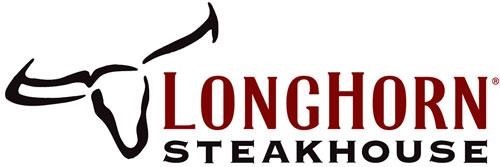
Nutrition facts and Weight Watchers points for Non-Alcoholic Beer from Longhorn.
Calories
There are 130 calories in Non-Alcoholic Beer.
Nutrition Facts
| Serving Size | 1 Serving | |
| Calories | 130 | |
| Calories From Fat | ||
| Amount Per Serving | % Daily Value* | |
| Total Fat | 0g | 0% |
| Saturated Fat | 0g | 0% |
| Trans Fat | 0g | |
| Cholesterol | 0mg | 0% |
| Sodium | 45mg | 2% |
| Total Carbohydrates | 29g | 10% |
| Dietary Fiber | 0g | 0% |
| Sugars | 29g | |
| Protein | 1g | 2% |
| Vitamin A | ? | |
| Vitamin C | ? | |
| Calcium | ? | |
| Iron | ? | |
*All percent daily value figures are based on a 2,000 calorie diet.
Nutritional information source: Longhorn
Allergens
We are working on getting the allergen information for this item.
Ingredients
We are working on getting the ingredients for this item.
Additional Information
Longhorn Non-Alcoholic Beer is a popular beverage choice for individuals seeking a non-alcoholic alternative without compromising on taste and experience. This expert article aims to delve deeper into the features, benefits and drawbacks of this product, shedding light on what makes it a unique option in the marketplace.
Features & Benefits
Longhorn Non-Alcoholic Beer offers several notable features that set it apart from traditional alcoholic beers. Here are some key features to consider:
- Zero alcohol content: Longhorn Non-Alcoholic Beer is specifically designed to have zero alcohol content. While it’s important to note that some non-alcoholic beers may contain trace amounts of alcohol, Longhorn ensures that its product is truly alcohol-free.
- Low-calorie option: For those watching their calorie intake, Longhorn Non-Alcoholic Beer is a great choice. With only 130 calories per serving, it offers a lighter alternative to regular beers without compromising on taste.
- Nutritional profile: Longhorn Non-Alcoholic Beer has a balanced nutritional profile. Each serving contains 4 grams of protein and 116 grams of carbohydrates, making it a suitable option for individuals looking for a beverage with some nutritional value.
Benefits:
Longhorn Non-Alcoholic Beer offers many benefits that contribute to its growing popularity with consumers. Here are some of the benefits to consider:
- Pleasant taste: Longhorn Non-Alcoholic Beer is designed to deliver a taste and experience that closely resembles traditional beer. This makes it an appealing choice for people who appreciate the taste and ritual of drinking beer, but prefer to avoid alcohol.
- Health-conscious option: By choosing Longhorn Non-Alcoholic Beer, individuals can enjoy a beer-like experience without the potential negative effects of alcohol consumption. It can be a suitable alternative for those concerned about liver health, pancreatitis or other alcohol-related medical conditions.
- Reducing alcohol intake: Longhorn Non-Alcoholic Beer serves as a tool for individuals who wish to reduce their alcohol consumption. It allows them to still enjoy the taste and social aspects of beer drinking while making a conscious choice to limit their alcohol intake.
Disadvantages:
While Longhorn Non-Alcoholic Beer has its merits, it’s important to consider the potential drawbacks associated with this product:
- Availability: The availability of Longhorn Non-Alcoholic Beer may vary depending on your region and the establishments that carry it. It’s important to check local retailers or online platforms to ensure access to this specific brand.
- Taste Variations: As with any beverage, taste preferences can vary from person to person. While Longhorn Non-Alcoholic Beer aims to closely mimic the taste of alcoholic beer, individual palates may perceive subtle differences. It’s a good idea to try the product and determine your personal satisfaction with its taste.
- Limited alcohol content: Although Longhorn Non-Alcoholic Beer is marketed as alcohol-free, it’s important to note that some non-alcoholic beers may contain trace amounts of alcohol, including Longhorn. The alcohol content is typically less than 0.5% ABV, which is significantly lower than traditional beer, but may still be a consideration for those who strictly abstain from alcohol.
Conclusion
Longhorn Non-Alcoholic Beer offers a compelling option for individuals seeking a non-alcoholic alternative that still delivers the taste and experience of beer. With its zero alcohol content, low calorie profile and enjoyable taste, it is a viable choice for those looking to reduce their alcohol consumption or avoid alcohol altogether. However, availability and individual taste preferences should be considered, as well as the trace alcohol content inherent in most alcohol-free beers.
Questions and Answers
Is Longhorn Non-Alcoholic Beer completely alcohol free?
Yes, Longhorn Non-Alcoholic Beer is manufactured to be alcohol-free. While some non-alcoholic beers may contain trace amounts of alcohol, Longhorn ensures that its product has zero alcohol content.
How many calories are in Longhorn Non-Alcoholic Beer?
Longhorn Non-Alcoholic Beer has 130 calories per serving. It is a lower calorie option compared to traditional alcoholic beers.
Can minors consume Longhorn Non-Alcoholic Beer?
While Longhorn Non-Alcoholic Beer does not contain alcohol, it is important to note that laws regarding the consumption of non-alcoholic beverages by minors may vary by region. It is advisable to check local regulations regarding the consumption of such products by persons under the legal drinking age.
Does Longhorn Non-Alcoholic Beer taste like alcoholic beer?
Longhorn Non-Alcoholic Beer is designed to closely mimic the taste of traditional beer. However, individual taste preferences may vary and some people may notice slight differences in taste. It is recommended that you try the product to determine your personal satisfaction with its taste.
Can Longhorn Non-Alcoholic Beer be an appropriate choice for people with certain medical conditions?
Longhorn Non-Alcoholic Beer may be a more favorable option for individuals concerned about liver-related medical conditions or those seeking to reduce their alcohol intake. However, it is important to consult with a health care professional regarding specific medical conditions and dietary choices to ensure that they meet individual needs and requirements.